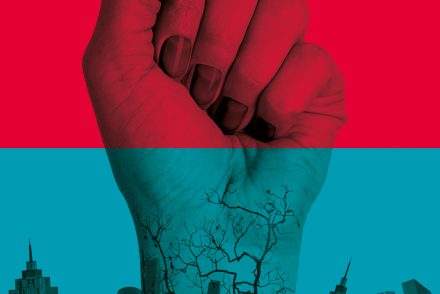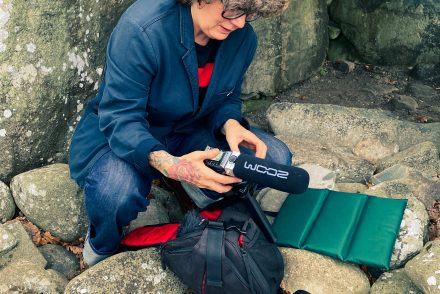Living a transient life in a van can change a person, but I suppose it depends how much change is invited. The conscious decision to sell all of our possessions that wouldn’t fit in the van as we transitioned to a nomadic lifestyle was part of the catalyst for an evolution of self. I’m not sure this can fully manifest if you’re holding onto stuff, literally and figuratively. This experience has already encouraged self-learning in so many ways that could not have happened if we’d stayed in one place. When in a fixed environment the personality can become static, leading to the idioms ‘too set in their ways’ or ‘you can’t teach an old dog new tricks’. Vanlife allows for opportunities to see yourself differently, or to experience other aspects of each other, that rarely, if ever, arise when static. Slowing right down offers other opportunities for growth – for the first time in a long time I’m finding the space to finish more of the books I want (thank you iPad & iBooks), which is another slice of heaven. The current non-fiction read is Yuval Noah Harari’s Sapiens (fiction is Nnedi Okorafor’s Binti trilogy, and poetry is Adrienne Rich selected poems). To be honest I stepped away from Harari’s more recent 21 Lessons without finishing it because he makes some quite astounding generalisations about the future of the arts and his grasp of feminism appears quite weak, but the entire world is singing the praises of Sapiens and I found Harari engaging and thoughtful on Russell Brand’s podcast, Under The Skin (although Brand’s continued subtle, and sometimes not so subtle, undermining of some of his female guests is starting to grate even though I considered myself a fan). Is anyone else reading/has read Sapiens? I’d love to know what you think as I’m still about half-way through? So far there’s some inspired thinking about wheat cultivating humans instead of vice-versa (perhaps more of a co-creation?), and the theory that ‘the average farmer worked harder than the average forager’ whilst having infinitely less freedom feels like an important truth that our culture could do with examining in greater depth. I’m finding what I thought might be a gruelling read actually really enjoyable thanks to Harari’s engaging writing style. But (and perhaps this thinking has come from our life on the road) I’m struggling to understand how he can spend the first hundred or so pages discussing our ancestors’ ability (and deep seated need) to roam, to explore, to keep moving, and then move quickly to blaming the modern-day need to travel on nothing more than a throwback to nineteenth century Romanticism, which he’s then tied in with consumerism as if the two are mutually inclusive. Travel, when done the way Harari describes, is exactly as he writes, but I think perhaps this shows the weakness of arguments made by theorists whose own limited experiences of life shape their thinking – which is a point he himself makes when trying to unravel the thinking of other historians’ theories. Living on the road, even in today’s consumerist culture, still involves, for many people, embracing a more frugal, minimalist, environmentally aware existence because we can’t carry so much stuff (again both figuratively and literally) and we often have a deep need to disconnect from the better/faster/more/competitive work-culture, which changes a person, leading potentially away from consumerist ideas and more towards spending time in nature. I’m not saying this is the case for everyone, I’ve seen some vans that would pass for Beyoncé’s tour bus, but like every situation in life the lessons are there: some choose to see them for the learning experience they are and allow the mind to become a constantly evolving and fertile landscape; others are still able to ignore everything except the solid steel ball of their own surety pinballing around their empty head. Anyway I’m still very much enjoying reading Sapiens, and Harari’s writing, so perhaps it’s more that I’m feeling a great affinity with this nomadic life. This lived experience speaks to my soul: it is sometimes difficult and contrary, dragging the heart down to real lows at times, but the living is visceral and real and also lifts the soul to unimaginable highs, the connections are meaningful and life-affirming; the process shines a bright light so that our shadows can be easily seen and worked with in a way that feels authentic and true.




No Comments